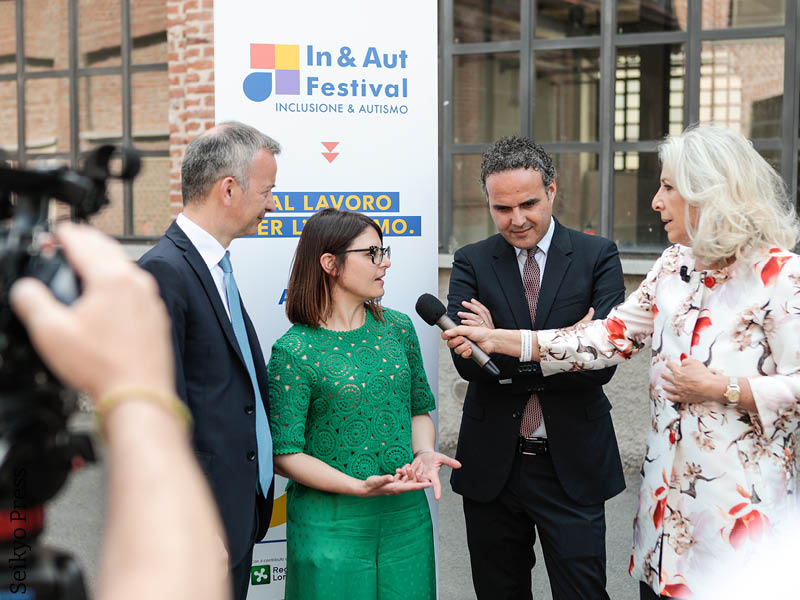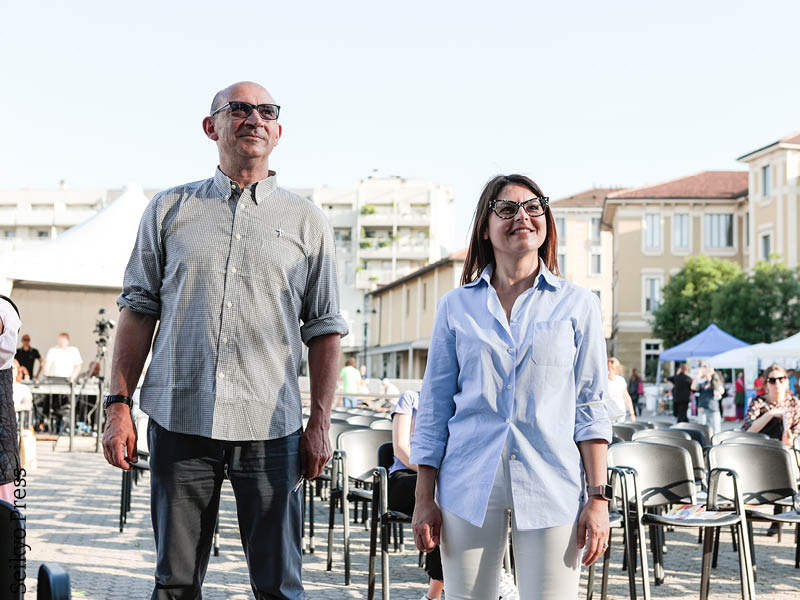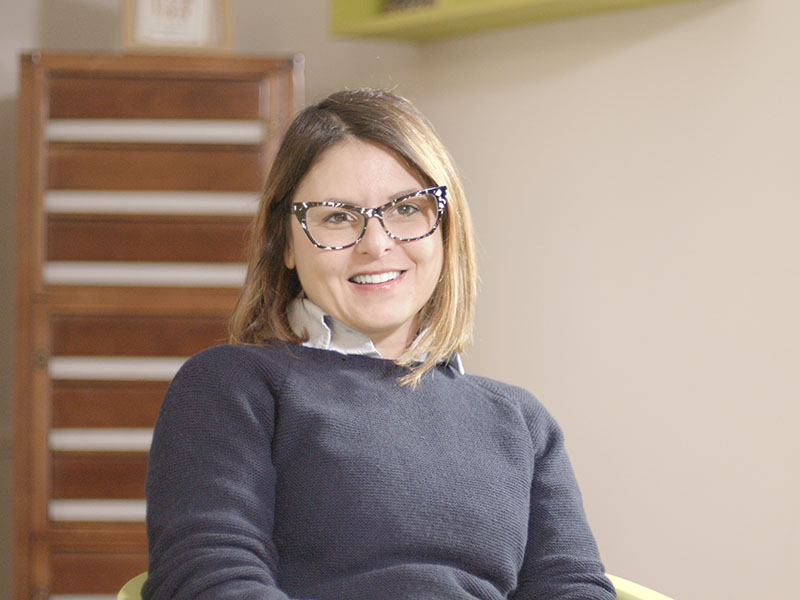You were awarded a grant within the “NEET Youth” call financed with the 8×1000 funds of the Istituto Buddista Italiano Soka Gakkai. What is the project and how did it start?
The In & Aut project stems from the need to uncover a great resource for our country (and for themselves): boys and girls. We want to create inclusion opportunities for each of them to do their very best.
We identified two groups of young people who were not receiving adequate attention: teenagers with autism and fragile teenagers in general. Their fragility often escapes classifications, as their condition is not so serious as to consider them disabled, yet they are not as capable as to autonomously find employment.
The first step was creating a way for these young people to be first of all identified ‒ not an easy task ‒ and then setting up a network of companies that could hire them.
Then we organized the first national festival that spotlighted practices fostering inclusion at work for people with autism and disability.
Thanks to the In & Aut festival we perceived the importance of the project, not only for the companies that had the opportunity to see with their eyes how valuable a fragile or disabled person can be in the workplace, but also for the families, who finally felt heard.
We are living in a complex period, including in terms of the access young people have to the labor market, especially in the contexts of multidimensional poverty that this project targets. What are the main challenges young people with physical and/or mental vulnerabilities have to face?
For young people, especially fragile ones, approaching the world of work is increasingly complex. But it is in poverty contexts, such as the ones where we operate, that investing on this aspect becomes fundamental.
Nowadays young people are rarely asked what they want to do when they grow up and their horizons in terms of dreams have narrowed down to the bare need to work.
The In & Aut project, which we have promoted together, thanks to the 8×1000 funds of the Istituto Buddista Italiano Soka Gakkai, has given concrete answers to this.
The companies we trained to include fragile youth were required to identify tasks that didn’t already exist in their contexts. The most important tasks they identified, besides technical ones, were tasks requiring those soft skills that usually fragile youth bring to work environments.
For example, young people with Asperger’s Syndrome are characterized by great sensitivity, which a company can benefit from. They tend to work non-stop and link their work to a goal to be reached. And they do their very best until they reach it.
Companies that included them received a great added value and we believe this is an important tool that we would like to turn into a model, a new way to approach work not only for young people but also for companies in general.
In 2022, within the In & Aut. A lavoro per l’inclusione project promoted with the 8×1000 funds of the Istituto Buddista Italiano Soka Gakkai, the first Italian festival of social inclusion and work for people with autism was organized. What was the impact of this important event?
During the three-day In & Aut Festival, a positive wave was generated and spread from Milan to the whole of Italy. The media impact was great and participants included not only experts in the field and families with autistic children – as it is often the case for events like this one – but also national institutions.
The President of the Italian Senate, the president and vice-president of the Lombardy region, the mayor of Milan and other mayors participated, which shows that this is a cross-cutting issue.
When the country is in the position to say that this cross-cutting issue has been tackled, then we will all have made a step forward in terms of civilization.
Inclusion at work was discussed in depth through the voice of those who actually make it real, from the third sector to those parents who, in the absence of an institutional answer, have tried to find their own solution to the problem.
Experts in the sector shared the latest progress in terms of how science explains the different way in which people function. Because autism is not simply a disability: autistic people really function in another way.
The shock wave hit businesses and multinationals that, up until that moment, had never been faced with the issue of autism.
Those days enabled everyone – each from their own point of view – to understand that we can make a difference. For example, thanks to the “Comincini Law”, today start-up companies that hire autistic people can benefit from a series of reductions in social security contributions and disabled people can keep their disability pension, which is normally canceled when they find a job. This is important legislative progress and surely the festival contributed to accelerating it.
This festival’s shock wave is still perceived in the companies thanks to the training they received.
As president of the “La Rotonda” association, you have witnessed many virtuous experiences. What is your advice to those young people who despair of becoming independent in terms of housing and income?
To the families who at times feel abandoned, I would say that indeed there are virtuous experiences, partly also thanks to the festival, because we are seeing a positive contagion effect in terms of inclusion of people with autism and disability in the world of work.
It is important for families to meet the organizations who are already active in this sense, so that they can be included in their activities.
My advice to young people is to never stop, and keep striving to fulfill their needs.
Thanks to the project, a young woman is working with an important communication agency in Rome through one of our grants. Telling me about her life, she said: «I felt I was different from the others, but at the same time I felt I wasn’t. I suffered a lot, until I managed to give a name to my condition and I understood that mine is simply another way to approach things».
Today this young woman has found her place in the world, is giving her unique contribution and has become a trustworthy employee for the communication agency. Our grant will be turned into an employment contract for her.
Thanks to this project, financed with the 8×1000 funds of the Soka Gakkai, we have been able to give job grants to youth with Asperger’s syndrome and not just in Milan: we have started expanding to other areas in Italy. One of the most important messages to give to young people is that everyone has to find their own, unique path. Some may need a mentor who can guide them, but they will certainly find their path in the end.


